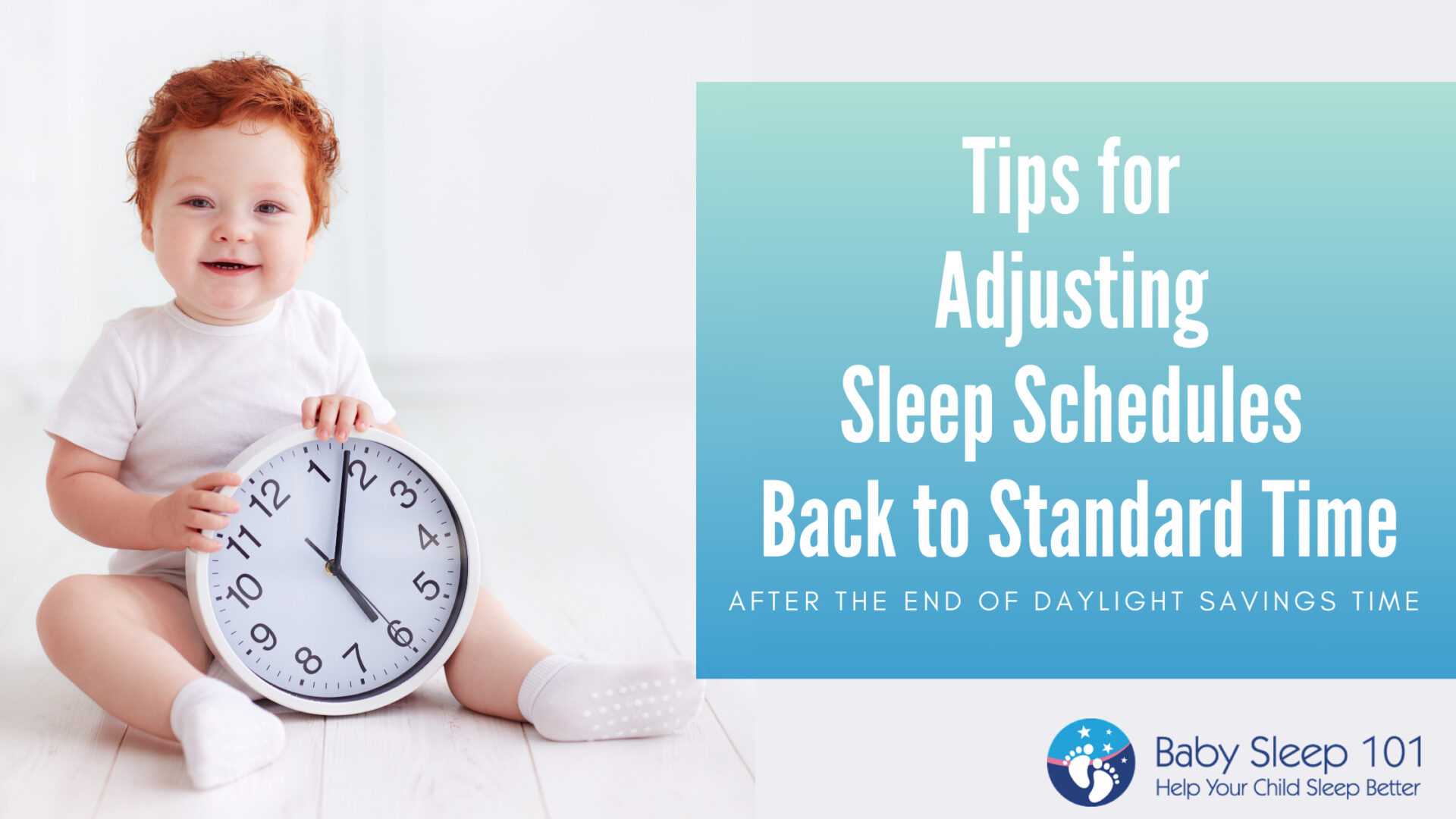The End of daylight saving time and Your Baby; How to Cope
With the end of daylight saving time coming up in November, everyone’s looking forward to that “extra” hour of sleep we’ve all been hearing about.
But the parents of young children might already be starting to worry. They’re imagining what life will be like if their child who’s been consistently waking up around 5:00 am will now be ready to start her day at 4:00 am!
If this sounds like you, there are four methods to help you get prepared and make the transition as smooth as possible. There’s still plenty of time!
But first: if your child wakes up too early already, it’s time to figure out why.
What do I mean by “early”? It’s common for children to wake naturally between 5:30 am and 7:00 am. But if your child is regularly waking earlier than that, there’s probably a reason.
- Your child is overtired at bedtime the night before. This is the most common reason for waking up before 6:00 am. And unfortunately, being overtired is a frequently missed as a possibly culprit of early morning wakings. To solve your child’s sleep debt, you’ll need to look at your child’s whole routine and make sure she’s getting the right amount of naps during the day and that bedtime is early enough. It’s worth working on good, healthy sleep habits now so a change like daylight saving time ending, won’t disrupt your child’s routine more than necessary.
- Your child is hungry. Especially is your baby is under 9 months, she may simply need to be fed. Try offering a feed at this early morning waking. If she goes right back to sleep, you’ve found your solution.
- Your child is uncomfortable. Common parts of life for a baby, like teething, a wet diaper, or a room that’s too hot or too cold, can be very uncomfortable and cause your child to wake up early.
- Your child can hear too much outside noise. Did you know that your lightest stages of sleep happen in the early morning hours? The same is true for your child. Dogs barking, horns honking, a garbage truck driving by – these can all wake up your child just as easily.
Want more sleep tips for your baby? Download the FREE Baby Sleep Basics ebook here.
Once you’ve addressed the sleep issues your child might be facing (or if your child already sleeps great and you want to keep it that way), you still have options to make the transition back into standard time even easier.
1. The simple approach: let your child adjust on his own. We all have internal clocks that operate on the light around us – the amount and the timing. And just like you’ll adjust to the time change in a few days, your little one can do the same. To make it even easier on your child, you could gradually move his bedtime forward by 15 minutes each night. He’ll be caught up soon!
2. A bit more strategy: shift forward to fall back. Four days before the time change, move your child’s entire routine (sleep, meals, wake up time, and playtime) ahead by 15 minutes, and continue that each day. Keep in mind that at first, you’ll need to leave your child in bed after they wake up from sleep times (naps and overnight) because they probably won’t sleep in automatically right away.
3. The complete routine overhaul. If you’ve got a child who gets overtired easily, this is the strategy for you. You’ll begin a full week before the time change and implement the 15-minute changes very gradually. On some days, you won’t switch the routine at all. Your child’s body will slowly catch up before being moved forward again. With this approach it’s important that you leave your child in bed longer, even if they continue to wake up at the regular time.
4. The happy medium. When daylight saving time ends, move your child onto the new clock time that day. However, with this technique, we also stay flexible with their routine for the following week. Maybe bedtime will need to stay early, or nap time will need to be moved – this method is all about taking cues from your child.
Changing up a child’s routine is never easy, but daylight saving time doesn’t have to lead to meltdowns. All it takes it a little preparation. With a well-rested baby in your house, you and your family will be less stressed and ready to enjoy the Fall.









